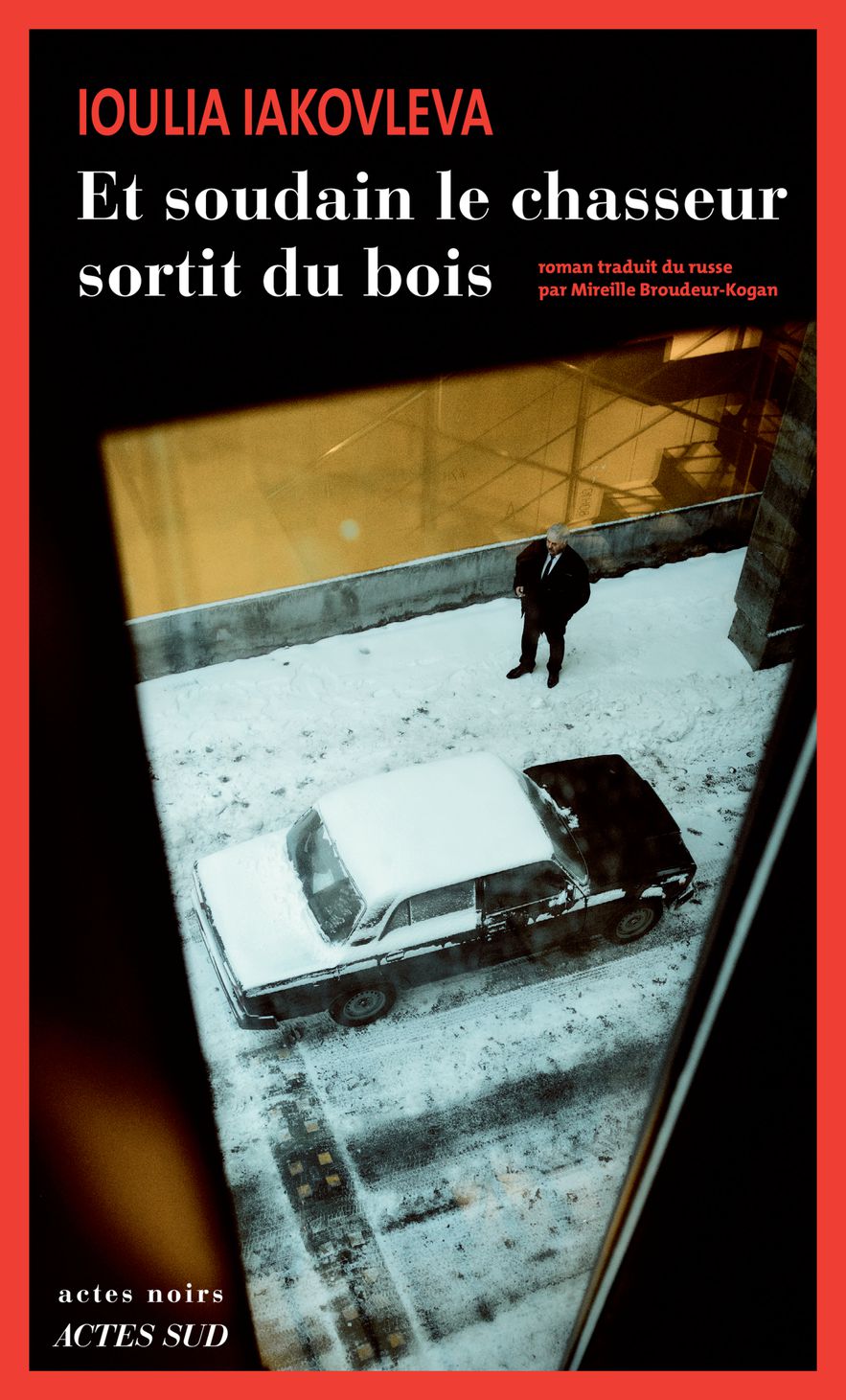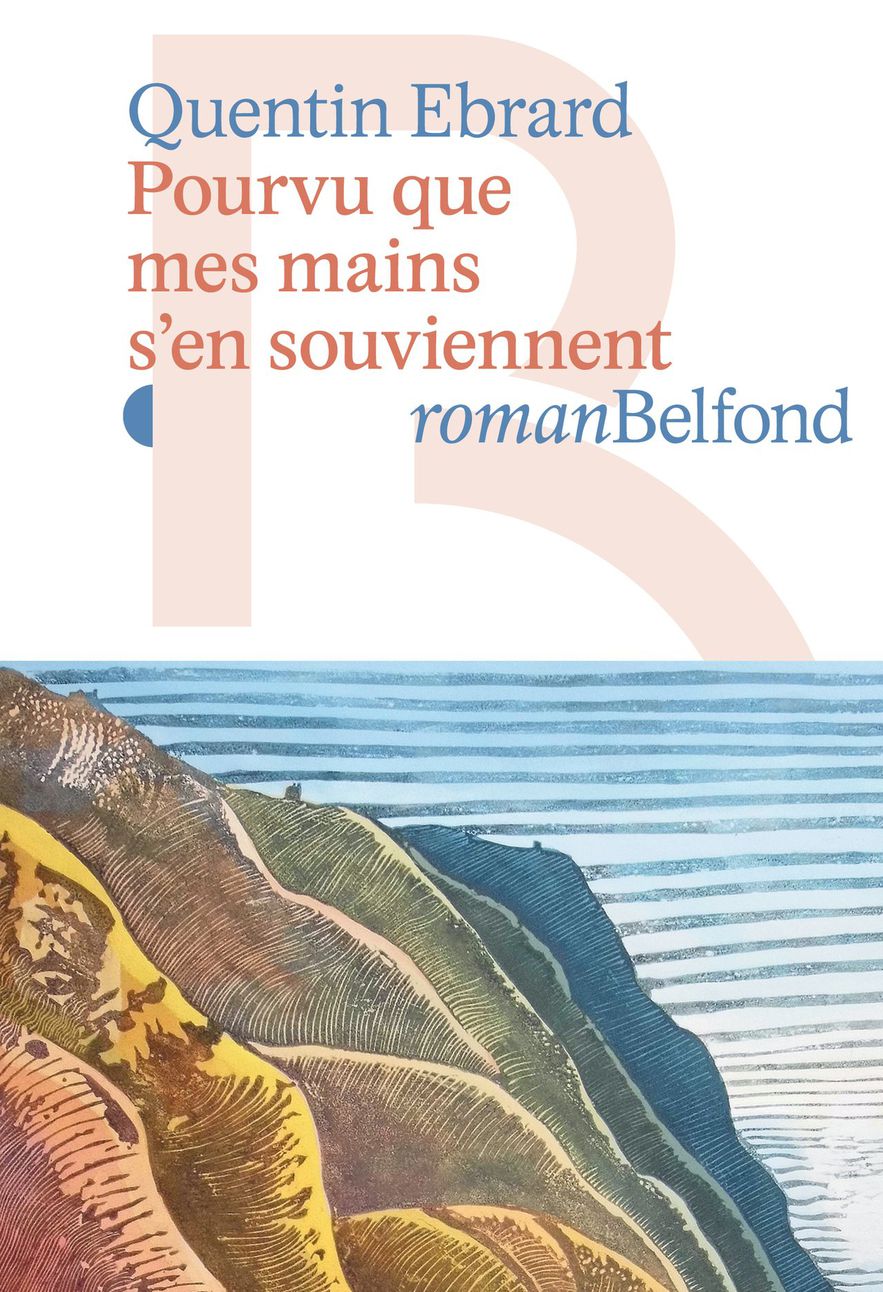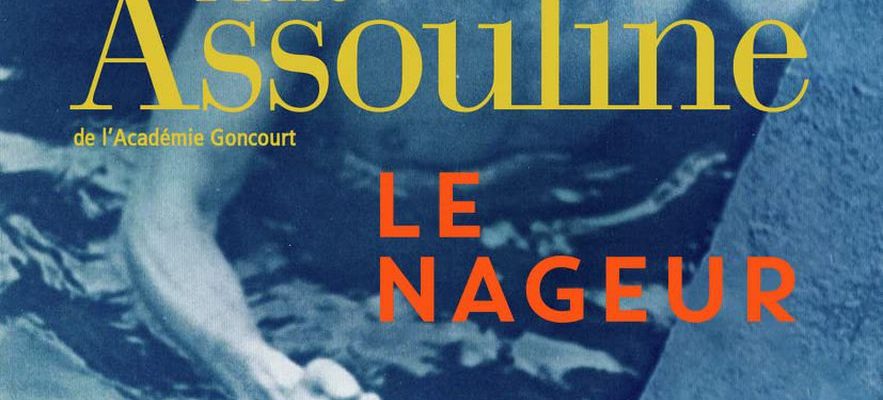the swimmer, pby Pierre Assouline, Gallimard, 260 p., €20.
The rating of L’Express: 4/5
THE SWIMMER BY PIERRE ASSOULINE
© / GALLIMARD
No doubt, our columnist is like a fish in water with this literary account of Alfred Nakache (1915-1983), prodigious and generous swimming champion whose life was nothing like a long calm river. Yes, it was obvious for Pierre Assouline. Everything is there: swimming, dear to the academician Goncourt, belonging to the Jewish community of North Africa (Assouline was born in Casablanca, Nakache in Constantine), the Janson-de-Sailly high school and the Racing Club of France, prestigious Parisian establishments frequented by the two men, the Occupation, period of choice for the investigative journalist and source of numerous works (The Combelle River, Lutetia, Sigmaringen…). And, to finish, this extraordinary and highly romantic existence, alternating the happy days and the most dramatic hours, which could only seduce the biographer of Albert Londres and the Last of the Camondos.
At the beginning, he swims “crazy”, Alfred Nakache. It is therefore not for his style that the coaches of the Constantine club spot him, but for a “je-ne-sais-quoi in him”, a mixture of carelessness and assurance, a formidable natural energy. Sent to Paris, this son of a notable (in charge of the pawnshop) very quickly finds himself in the deep end: first French championship at 17, already a nickname, Artem, and a protector, the great Jean Taris; in his second championship, in 1934, trained by Georges Hermant, he met Jacques Cartonnet, “from the outset his best enemy” – haughty stylist with an Aryan look and unpredictable reveler – and won the 100 meter freestyle. In 1936, it was the famous Olympic Games in Berlin, which Pierre Assouline mastered to perfection, from the threats of a boycott following the racial laws of Nuremberg to the triumph of Jesse Owens, just as he recounts with science and explains the rise of Nakache (15 times French champion, double world record holder).
Refugee in Toulouse, Artem continues the competitions, while the activity is prohibited to the Jews, while training the Jewish resistance fighters at night. A surreal situation that lasted until his arrest on December 21, 1943, on the supposed denunciation of his “best enemy” Cartonnet, an active member of the PPF. Deported to Auschwitz, with his wife and their granddaughter Annie, Nakache will return, alone and broken. “Swim so as not to sink”, then intones his charismatic Toulouse coach, Alban Minville. This is how it ends, or almost, the swimmer, wonderful literary-historical-sporting account of the astonishing odyssey of a little guy from Constantine.
And suddenly the hunter came out of the wood, by Yulia Yakovleva, trans. from Russian by Mireille Broudeur-Kogan. Actes Sud, 496 p., €24.50.
The rating of L’Express: 3/5

AND SUDDENLY THE HUNTER COMES OUT OF THE WOODS BY YULIA YAKOVLEVA
© / SOUTH ACTS
A newcomer to the black scene, Ioulia Iakovleva, a Russian living in Oslo, makes a remarkable entrance with this historical and detective novel. Admittedly, it narrates the misadventures of Inspector Zaïtsev charged with investigating a series of strangely staged murders. But the great interest of the novel is due to its atmosphere, the paranoid one of the 1930s in Leningrad. Stalin reigns supreme in the Soviet Union, he has just interrupted the NEP (new economic policy) put in place by Lenin. Now is the time for collectivism and purges.
Zaïtsev lives in a world where one can be stopped at any time on a sidewalk by the GPU, the political police. With him, we discover the system of stocked stores so that the powerful, and they alone, do not suffer from shortages. We observe with horror people disappear overnight, this omnipresent fear of the neighbor, of the colleague of whom we do not know if he is friend, enemy, traitor or zealous of the regime. We survey, finally, the Hermitage Museum, where the most beautiful paintings by masters have evaporated. The whole forms a fascinating novel on the emergence of a totalitarian world and the corruption already at work behind the claimed ideals.
As long as my hands remember it, by Quentin Ebrard, Belfond, 190 pages, €20.
The rating of L’Express: 3/5

AS MY HANDS REMEMBER BY QUENTIN EBRARD
© / BELFOND
It’s night, Louise jumps out of her bedroom window, runs in the park of the castle, and is caught up, with bleeding feet, by Joël, “the most terrible of monos”. Sea and cliff on one side, fields of sunflowers on the other, it’s not easy to escape from this dreadful summer camp. Louise is the narrator of this camera as scary as baroque. There is the sad and tall Juliette, who wants to be her friend, Simon, the handyman, who has a crush on her, Sonia, the disabled, her enemy…
Convinced that her parents are looking for her outside the walls, she never stops escaping. And soon scaffolds the project to flee by hang-glider, from the top of the cliff. Stop, we won’t say more. Because you will read it twice, this touching first novel by literary influencer Quentin Ebrard. Once, “blindly”, until his astonishing fall, and another time, in search of clues or unspoken leading you to said fall, which makes all the salt of this original and clever story.
